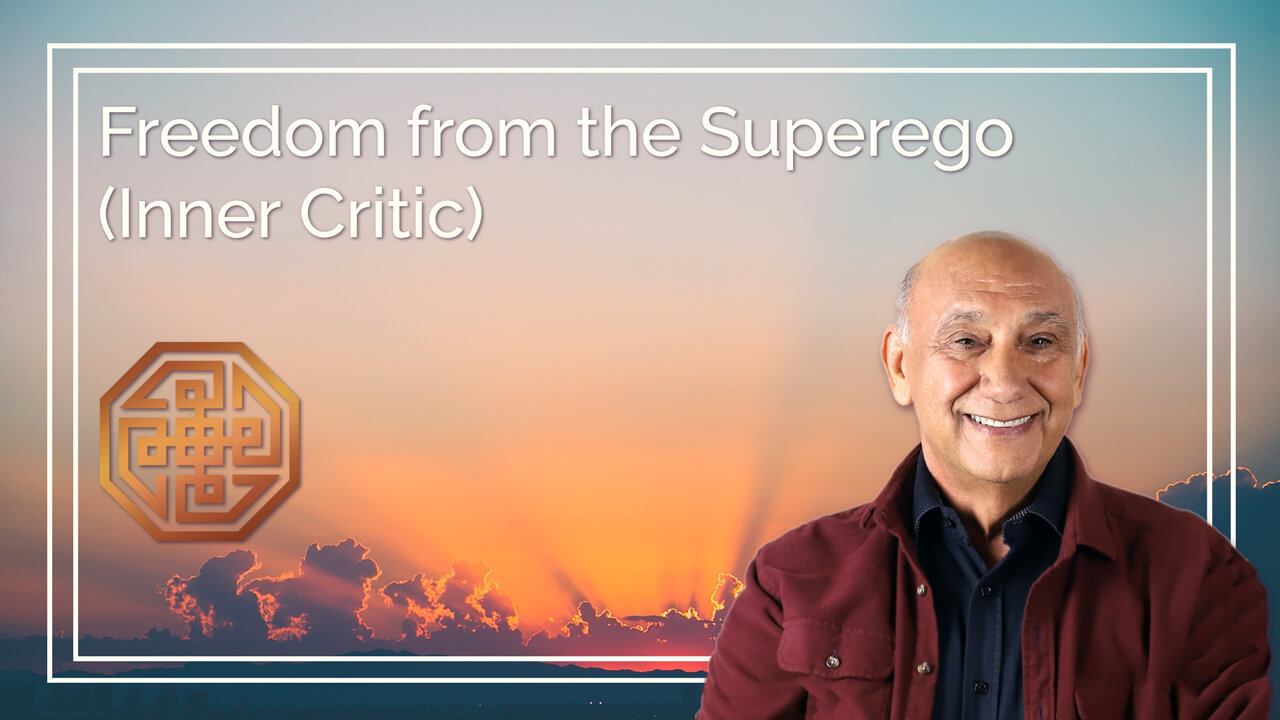Awareness of Superego Activity
A good arena within which to recognize, understand, and deal with the superego is in our relationships with others. This is primarily because one frequently projects one’s superego onto certain individuals, and relates to them as one does to one's own superego. Of course, this defense mechanism of projection helps to keep the superego unconscious, just as any defense mechanism does.
Work on the Superego, pg. 8
Awareness of Superego's Purpose and Mission
The superego, as we have seen, is the first coercive agency that we encounter in working on ourselves, which we find to be invested in keeping the unconscious unconscious and which accomplishes this by disapproving of the unconscious material. So, our approach is to help the ego consciously defend itself against the attacks of the superego, and hence to eliminate this important part of the need for unconscious ego defense mechanisms. If this is done, some awareness of feelings and sensations will bring up the part of the unconscious disapproved of by the superego, now that the ego is not guarding against it.
Work on the Superego, pg. 6
Comprehending Superego Attacks
Your superego attacks you about whatever sense of deficiency it finds in your experience. Under normal circumstances, there is a misinterpretation of the deficiency; it is not seen as the absence of a certain manifestation of your Being. Instead, your superego attacks you, saying you’re too short, your nose is crooked, you're dumb, you say things wrong, you never know which foot to put first—that kind of thing. That is the way your superego picks on you: It finds those little incompletenesses and attacks you for them. But when you understand that incompleteness has nothing to do with these things, you will have a deeper handle on your superego. Completeness happens by confronting and completely tolerating the incompleteness. So your superego, by attacking you for feeling incomplete, is really preventing you from getting closer and relaxing into your own true nature, which is complete.
Brilliancy, pg. 74
Defending Against the Superego
In the early years of our practice of being where we are, we need to constantly recognize the superego and its ploys and learn how to defend against them. Basically, we need to tell the superego where to go: “Who cares what you think? Go to hell.” Okay, so you feel deficient, and the superego keeps insisting that you’ll never amount to anything. You can tell it, “Good—if I’m never going to amount to anything, why are you bothering me? Go find somebody else.” This is a way of disengaging, but with strength, with energy, with awareness.
The Unfolding Now, pg. 66
Dissolving Superego Attacks
The second stage of working with the superego begins after we have learned to defend against it with strength, boldness, and aggressiveness. These are energies that we have taken back and owned and therefore can use. Our awareness is now strong and clear, and our inquiry skills are sufficiently developed to prevent a superego attack from confusing us or putting us into a tailspin. At this point, using aggression to defend ourselves is less important; simply recognizing and understanding an attack can counter it. We can often dissolve an attack simply by knowing that the superego is attacking us and understanding why.
The Unfolding Now, pg. 67
Superego Resists Change
The superego is that part of the person that maintains repression and fights any changes to the status quo. It is one of the main reasons why ego defenses are needed (defending against painful ego states and maintaining ego structures being the others); hence it is responsible for the presence of prejudices, overt and covert.
Work on the Superego, pg. 5
Superego's Fall from Grace
The superego which was erected to preserve and protect life, becomes a coercive agency that leads to death, not only in the mental, emotional, and spiritual sense; but sometimes also in the physical sense, as in the case of psychosomatic illness and self-destructive behavior.
Work on the Superego, pg. 5
Systems Have a Superego
Whenever a person works within a certain system, the values and prejudices of that system are automatically incorporated into his superego, and in time become coercive agencies. Or, to put it more graphically, the individual develops the particular system's superego.
Work on the Superego, pg. 6
The Apex of the Psychic Structure
The superego is a structure that forms the apex of the psychic structure and includes the ideals of the personality and the principles of judgment. It is the seat of what is customarily called the conscience.
The Inner Coercive Agency
From our perspective, the superego is the inner coercive agency that stands against the expansion of awareness and inner development, regardless of how mild or reasonable it becomes. It is a substitute, and a cruel one, for direct perception and knowledge. Inner development requires that, in time, there be no internal coercive agencies. There will be, instead, inner regulation based on objective perception, understanding, and love.


